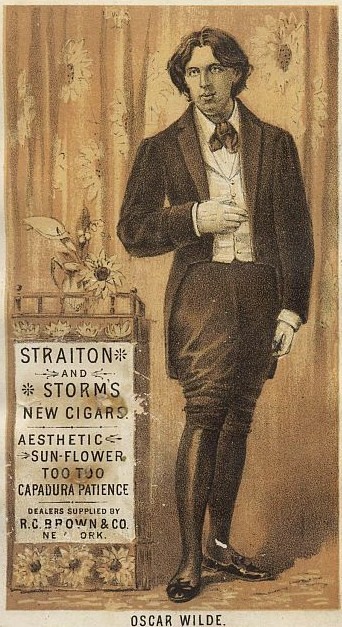Translators are generally helpful. If, for example, you needed to study French to read Voltaire, and for Old English for
Beowulf, ,and Castilian Spanish for Cervantes, you’d never have time to get any actual reading done. And the task of the translator is a difficult one. Do you sacrifice meaning for tone? As Robert Frost put it, “poetry is what gets lost in translation.”
Clearly, you can go too far afield in coming up with a translation. One of my favorite bits of mistranslation (favorite as in “a really good example,” not as in “an end result I agree with”) is in Frederick Rebsamen’s 1991 translation of
Beowulf. On the first page of his translation, Rebsamen says of Scyld Scefing that
the Danes found him floating with gifts
a strange king-child
which is a really odd way to translate
syððan ærest wearð
feasceaft funden; he þæs frofre gebad
Actually, it’s no way at all. Tolkien in his recently released prose translation (which, admitted escapes any problem of putting it into verse, something Tolkien tried and abandoned), has
he who first was found forlorn; comfort for that he lived to know, … throve in honor
(I skipped a bit of Tolkien because he reversed two half-lines, undoubtably to make the sense clearer).
Rebsamen here is just making it up, putting something into the poem that was never there (and actually violates the sense); no one who is destitute (
feascheaft) can also be “floating with gifts.”
In the great scheme of things, a bad translation of a line of
Beowulf doesn’t matter much (except to me, at least). The larger problem is the usual confidence people have that translators aren’t playing fast and loose with them. That happens more often then you would think.
In today’s
New York Times, Charles Blow noted that in a recent Gallup poll, 28% of Americans believe that
The Bible is the actual word of God and is to be taken literally, word for word. That might work if 28% of Americans could read the Bible literally, but that would take a mastery of Hebrew that few Americans have and of Greek possessed by even fewer. Because if you’re going to claim that the verse
must be taken literally, maybe you should know what it actually says. Most people, however, read the Bible through an interpretive haze of translation (I know I do).
If an obvious mistranslation of a line of
Beowulf isn’t all that important, how about a obvious mistranslation of a verse of the Bible? I have taken Deuteronomy 23:17 (or 23:18, your versification may vary) as the honesty test for a translation of the Bible. Here’s on possible translation of that phrase:
There shall be no whore of the daughters of Israel, nor a sodomite of the sons of Israel.
And what does it say in Hebrew?
לֹא-תִהְיֶה קְדֵשָׁה, מִבְּנוֹת יִשְׂרָאֵל; וְלֹא-יִהְיֶה קָדֵשׁ, מִבְּנֵי יִשְׂרָאֵל
Well, it’s written in that funny marks they use (and Blogger totally messes up the Hebrew). Good thing I can sound that out (like a first-grader). The important words in this passage are כדשה and כדש, and they are the words that are translated as “whore” and “sodomite.” They mean “holy.” The word for “prostitute” actually shows up in the next verse. It’s the wholly unrelated word זוּנה.
I’ve seen some sophisticated arguments that, well, other religions relied on male and female cultic prostitutes and so therefore, any reference to (foreign) clergy must mean they were doing the dirty as part of their religious observances. This is probably a good moment to mention how Jonathan Kirsch summed up Roman belief about early Christian practices in his history of monotheism,
God Against the Gods. It was clear to the Romans that Christians met in secret, not because they were persecuted, but because they were engaging in filthy and perverted sexual practices, which made for an excellent reason for persecuting the disgusting sex cult.
In other words, the idea that neighboring religions were sex cults might have been an inference made by the Jews when Deuteronomy was written, and it might have even been true, but that’s an inference we can’t draw from the actual texts. It’s a big leap to go from “holy” to “whore” (it could be some sort of taboo deformation, trading the sacred for the profane, but I haven’t seen anyone put forth any evidence for that).
The real inference seems to be that if during his recent trip to Israel, Pope Francis decided to convert to Orthodox Judaism, the Chief Rabbi would have been obligated to turn him away. I’m buying the translation that says,
No foreign priestess may join the daughters of Israel, nor shall a foreign priest join the sons of Israel.
A dodgy translation of
Beowulf doesn’t matter much, since no one ever says, “I take
Beowulf literally.” But if people are going to take the Bible literally, maybe they should be aware of what it actually says. If you’re going to proclaim the word of God, maybe you should be certain you’re not proclaiming the word of Translator.
You can follow my blog on Twitter (
@impofthediverse) or on
Facebook. If you like this post, share it with your friends. If you have a comment just for me, e-mail me at
impofthediverse@gmail.com.
This blog runs solely on ego! Follow this blog! Comment on this post! Let me know that you want to read more of it!











































